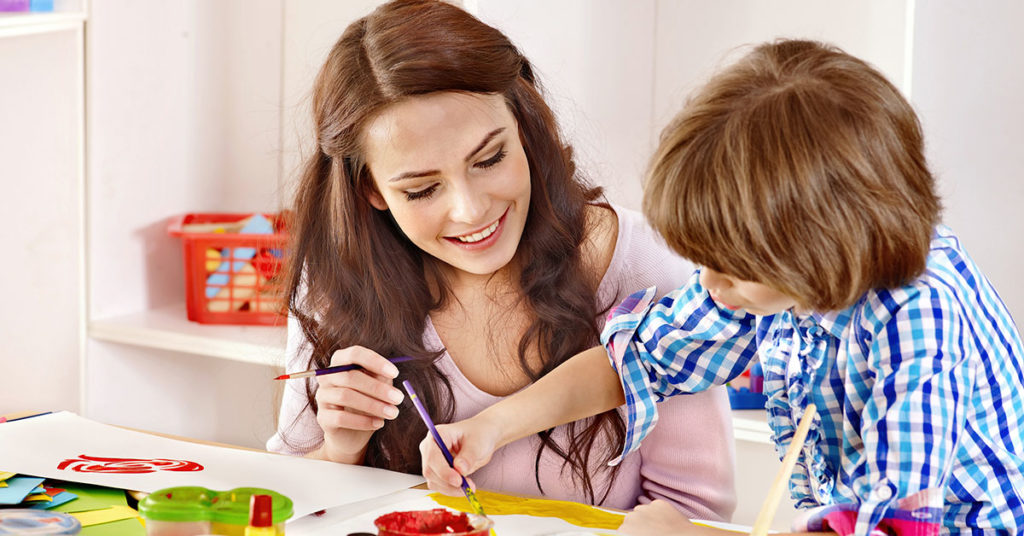- Explain the situation in clear and simple language. Be honest and tell them the truth in a friendly way, to this effect, it is important to be well informed on the subject, explain to them what an epidemic is, the consequences it has on their daily lives, and the importance of taking precautions to reduce the risk of getting the disease.
- Pay attention to them. Children can react to stress in different ways, some will be more attached to us out of fear, others will be more nervous, withdrawn, angry, or agitated, depending on their personality, and may even have reactions such as bedwetting. In this situation, it is convenient to pay attention to them more frequently than usual. It is important not to be indifferent. We must be supportive of their concerns, listen to them, and convey calm and love.
- Protect their emotions. The most important thing is to listen to their concerns by offering them our full attention. Acknowledge their emotions, make them see that everything they are feeling is normal. Be more understanding and patient with them, look for relaxation spaces, and share leisure time so that they forget about the restlessness they perceive in the environment.
- Keep them close to your family and friends. Children should not be separated from their usual caregivers and close friends. If the distance is forced (for example, as a preventive measure for their grandparents’ and closest friends’ health), it is important that they keep regular contact with them by other means (audio messages and video calls).
- Organize new routines and regular schedules. Although in isolation situations it is practically impossible not to vary our routines, it is important to maintain certain habits. For example, getting dressed, even if we have to stay at home; dedicate time to learning, being aware of them when doing homework; and also accompany them when performing recreational activities.
- Control the sources of information. It is our duty as parents to protect them from all the information that could confuse them or contribute to the development of anxiety and fear. Let’s avoid exposing them to news about the problem, that will help reduce anxiety at home. Let’s also explain that not all the information available on the internet is correct and that it is better to trust what the experts say.
- Put on a brave face and weather the storm. Make them notice that in difficult times or crises, there are also positive things like learning new activities, for example, we can instill the hand hygiene habit in a fun and practical way.
- Organize fun family activities. It is essential to plan moments of leisure and activities together, such as board games, crafts, cooking with the family, watching movies, listening to music, tidying the garden or the closets and drawers in the house, dancing, playing a musical instrument, reading, practicing breathing and meditation techniques.
- Exercising. Exercising as a family every day is vital to keep your spirits up and this is where creativity plays a key role, such as preparing an obstacle course in the garden, going up and down the stairs in various ways, etc.
- Teach them respect for the environment. Teach them to make small contributions to domestic hygiene, such as separating waste from garbage, recycling techniques, knowing the importance of cleaning the house, clothes, dishes, etc.
Another alternative is for children to write a “Coronavirus Diary” in which they can document their experience. This will allow them to better understand their emotions and concerns to help them better manage them.
The Clinical and Health Psychology and Psychotherapy Section of the Official School of Psychology of Madrid, together with Editorial Sentir, has created a story entitled “Rosa against the virus. A story to explain coronavirus and other possible viruses”, which is aimed at children between 4 and 10 years old to explain, simply and clearly, what a virus is and how to manage their emotions. Here is the link to download it: https://www.copmadrid.org/web/img_db/publicaciones/rosa-contra-el-virus-5e6b7760890fd.pdf
At ABC Medical Center’s Pediatric Center, we can provide you with specialized care. Contact us!
Fuentes:
Guía para padres sobre Coronavirus. Unicef. 2020.
Colegio oficial de la Psicología en Madrid. 2020.

